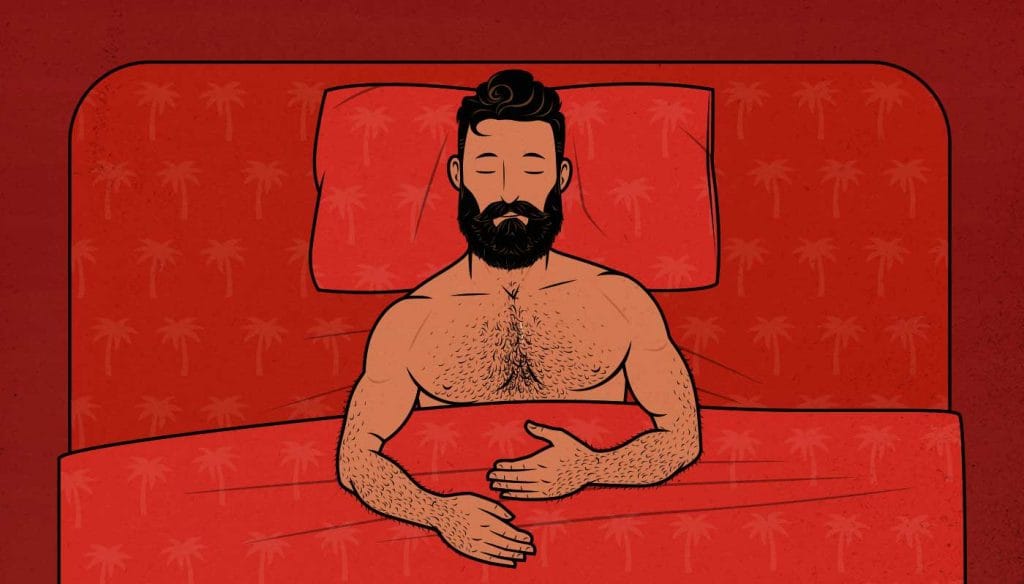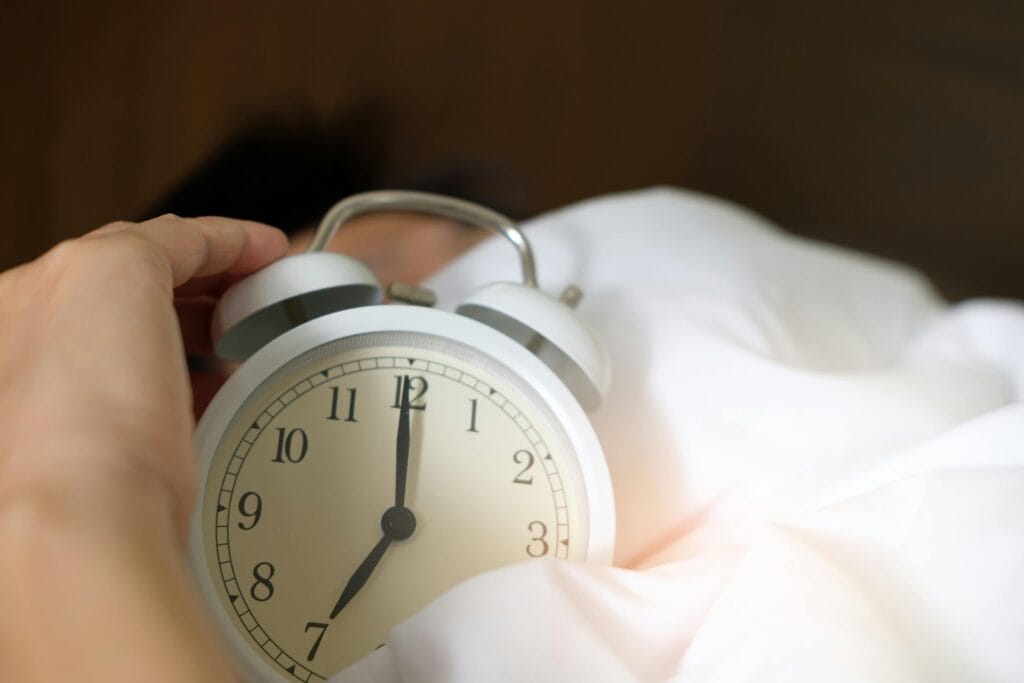Does Bulking Cause Insomnia? (Sleep Disruptions & Solutions)
Bulking and Sleep: Why It Matters
Bulking is all about eating more, training harder, and gaining muscle, but if it’s disrupting your sleep, it can actually slow down your progress. Sleep is when muscle recovery, repair, and growth happen, so poor sleep can hurt your results.
But does bulking actually cause insomnia, or is something else at play? Let’s break it all down.

How Bulking Can Cause Insomnia (7 Key Reasons)
1. Too Many Calories Before Bed
- Eating too much too close to bedtime can cause digestive discomfort, bloating, and acid reflux.
- Large meals take longer to digest, keeping your body active instead of winding down.
Fix it: Try eating your largest meals earlier in the day and keeping pre-bed meals lighter with protein and slow-digesting carbs.
2. Excess Protein & Digestion Issues
- High-protein diets can be harder to digest, especially if you’re eating a lot of red meat or dairy.
- Some people experience bloating, gas, or discomfort from too much whey protein or casein before bed.
Fix it: Opt for lean protein sources and consider digestive enzymes if you struggle with protein digestion.
3. Carbs, Blood Sugar Spikes, & Energy Surges
- Fast-digesting carbs (like white rice, sugar, or high-GI foods) can spike insulin and give you a burst of energy when you should be winding down.
Fix it: Stick to complex carbs (sweet potatoes, oats, brown rice) at night to stabilize blood sugar and promote sleep.
4. Stimulants in Supplements
- Caffeine, pre-workouts, fat burners, or stimulant-based thermogenics can keep your nervous system wired for hours.
- Even small amounts of caffeine 6+ hours before bed can still affect sleep.
Fix it: Cut off caffeine and stimulants by mid-afternoon (4-6 hours before bed).
5. Evening Workouts Increase Adrenaline & Cortisol
- Training too late at night increases adrenaline, cortisol, and body temperature, making it harder to relax.
- High-intensity workouts keep your central nervous system (CNS) stimulated for hours.
Fix it: Try training earlier in the day or focusing on low-intensity activities (like stretching or walking) in the evening.
6. Fast Metabolism & Increased Body Heat
- Eating more means your metabolism runs hotter, which can make you feel restless, sweaty, or too warm to sleep.
Fix it: Keep your room cool (around 65°F/18°C) and use breathable bedding to regulate temperature.
7. Electrolyte Imbalance & Restless Legs
- Low magnesium or potassium can lead to muscle cramps, restless legs, or night sweats.
Fix it: Eat more magnesium-rich foods (spinach, nuts, bananas) or take a magnesium supplement before bed.

Frequently Asked Questions (FAQs) About Bulking & Sleep
1. Does bulking affect sleep quality?
Yes, if you’re eating too much before bed, consuming too much caffeine, or training too late, your sleep can suffer. However, a well-planned bulking diet shouldn’t disrupt sleep.
2. Why do I feel more tired while bulking?
Bulking increases your caloric intake and training volume, meaning your body requires more recovery. If you’re not sleeping enough, your fatigue will build up.
3. Can too much protein cause insomnia?
Excess protein can lead to digestive discomfort, but protein itself doesn’t directly cause insomnia. The issue is more about when and what types of protein you’re eating.
4. Should I eat before bed while bulking?
Yes, but choose the right foods. A small meal with slow-digesting protein (casein, Greek yogurt) and complex carbs (oats, quinoa, brown rice) can support muscle growth without disrupting sleep.
5. Does weight gain make it harder to sleep?
Gaining weight itself doesn’t necessarily cause insomnia, but rapid weight gain can lead to higher body temperature, snoring, or sleep apnea, which can impact sleep quality.
How to Fix Sleep Problems While Bulking (7 Quick Tips)
✔ Time Your Meals Smartly – Eat lighter meals before bed to avoid bloating.
✔ Cut Off Caffeine Early – No pre-workout or coffee after 3-5 PM.
✔ Stick to Complex Carbs – Avoid sugar spikes before bed.
✔ Train Earlier – Evening workouts can delay sleep; train at least 4-5 hours before bed.
✔ Optimize Your Sleep Environment – Cool, dark, quiet rooms help you sleep faster.
✔ Use Sleep-Supporting Supplements – Magnesium, glycine, or melatonin can help.
✔ Stay Hydrated (But Not Too Much at Night) – Dehydration causes cramps, but drinking too much water before bed may lead to frequent bathroom trips.
Final Verdict: Does Bulking Cause Insomnia?
Yes, bulking can contribute to sleep problems, but it’s usually not the bulk itself—it’s the diet, timing, and training habits that cause issues. With the right nutrition, meal timing, and sleep strategies, you can bulk successfully without sacrificing sleep quality.
Are You Struggling With Sleep While Bulking?
If you’re dealing with insomnia while bulking, try these adjustments and track your sleep patterns. Have a specific issue? Reach Out To Me!
Browse The Best Muscle Building Articles
Conclusion
Ultimately, bulking does not directly cause insomnia, but poor nutritional and lifestyle choices while bulking can negatively impact sleep. With the right adjustments, you can optimize muscle growth without sacrificing quality rest.
Thanks For Reading!




